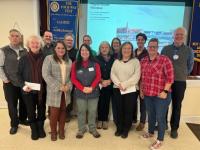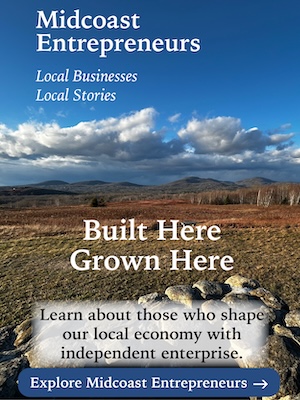What nonprofits could learn from Charlie Kirk.
Charlie Kirk was a leader who lived his life with purpose. Even though some people disagreed with his political views – and he ultimately lost his life because of them – no one could deny that he was all in for what he believed. As I am learning more about Charlie in these days after his assassination, I see that the way that he lived and how he led Turning Point USA (TPUSA) offers valuable lessons for nonprofits – whether or not you agree with his politics. Here are five things I believe nonprofits can learn from him.
- Be on fire for your mission. To his friends and people who followed him, Charlie’s energy was contagious. He promoted a brand of conservative politics that drew in nearly 13 million followers on Instagram – mostly young people who connected with his message of faith and freedom. His organization has a presence on over 3,500 college and high school campuses. His ability to mobilize young people in politics was remarkable, given that voters between the ages of 18 to 24 are the least likely to vote. Applying this principle to the nonprofit space, are you on fire for the cause that matters most to you? Do people even know what matters to you? You don’t have to throw baseball caps into fields of people to be on fire for your cause, but how you exude your passion can inspire others to join you.
- Be courageous. White supremacist. Nazi. Fascist. These are some of the names people called Charlie Kirk. And worse: according to his pastor, Charlie received death threats before he was assassinated. Despite this, Charlie continued to go out in public to share his truth. He did so in a fearless way. Even with security guards around him, Charlie positioned himself to face people directly and talk to them personally. In the same vein, there are many nonprofit workers who put themselves on the line to help others. People who work with survivors of domestic violence. Doctors who go to war-torn areas to provide medical assistance. First responders who take personal leave to go to disaster zones to help render aid. And more. The greater the risk to those who provide aid, the larger the impact of that service.
- Invite people to join you and put them where you need them. In the days after Charlie’s assassination, people in the media began to ask questions about what would happen to the organization he co-founded. For those who were involved with TPUSA, there was never a question that it would continue. While its board of directors has only five members, its advisory council engages approximately 80 people. With such a strong base of support, Charlie’s wife Erika could confidently assert that TPUSA would continue to grow. On Thursday, Erika was named CEO of TPUSA and as of today, 62,000 high school and college students have submitted requests to start new chapters or join existing groups. It may be tempting for nonprofit founders to keep their organizations small so that they can manage them – but what Charlie’s experience has shown is that the more people you bring into your organization, the more people you have evangelizing for your cause and working towards your mission.
- Work towards your legacy. In an interview on Fox News on June 29, Charlie indicated that he wanted to be remembered for “courage for his faith.” And evaluating the work Charlie did, one could see how every action he took pointed towards that goal. Charlie did not have an MBA or a degree in nonprofit management, but he built and managed an organization that earned over $85 million in 2023. He was proud to say that he wasn’t admitted to West Point and studied for less than a year in community college before dropping out. He had something bigger in mind and his path was not one that smart kids in high school are encouraged to take. Working in the nonprofit sector, it is easy to get caught up with emails and to-do lists: but do they add up to your big purpose? If not, explore how you can reorient your days so that every moment you have leads you towards that legacy.
- Remember, it’s not about you. Founders often struggle with what to call their organizations. Many people end up naming them after themselves or a loved one in whose memory the nonprofit works. While it is tempting to do so, there is a significant risk that the organization will languish after the founder is no longer involved. Or just as sad, people forget or don’t know who the person was after whom the organization was named. Charlie’s decision to name his organization “Turning Point” reflected his humility, recognition that the movement had to be bigger than one person, and vision that it would become a movement. If a nonprofit wants to live longer than its founder, it should set ego and emotions aside to become something bigger than one person.
I hope Charlie would appreciate that we can take these important lessons from his life. How these lessons support others in the nonprofit space is another part of the legacy he leaves.
About this blog:

Diane Lebson, CFRE, is CEO and Co-Founder of Evergreen Philanthropic Solutions, a Camden‑based consultancy that helps nonprofits in our community, throughout Maine, and across the country raise money and plan for their futures. She is also on the graduate faculty at the University of Maine's School of Policy and International Affairs where she teaches fundraising and nonprofit management. A member of the West Bay Rotary Club, Diane is the author of For A Good Cause: A Practical Guide to Giving Joyfully.






























